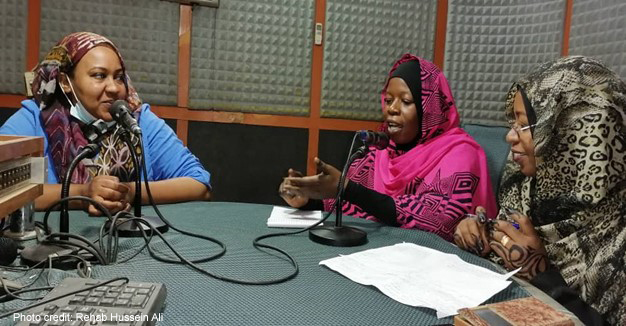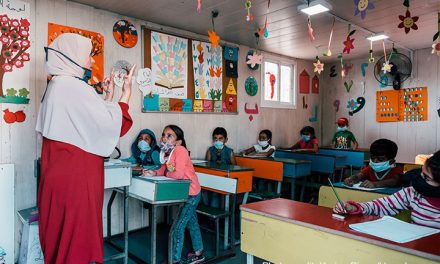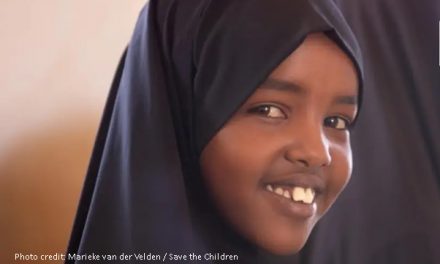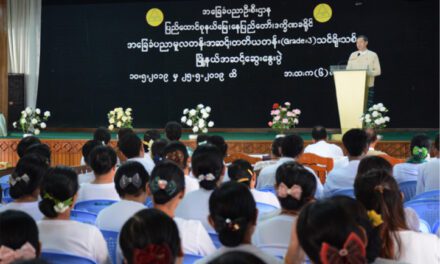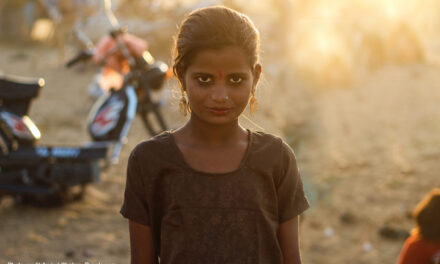This blog was written by Rehab Hussein Ali Rahmatallah, Faculty of Arts, University of Kordofan, Sudan.
In the heart of North Kordofan state in Sudan, the University of Kordofan is playing a pivotal role in promoting peace and community development. A partnership forged between the University’s Center for Peace and Development Studies, the Department of Public Relations and Media and the Department of Media at the Faculty of Arts, has successfully engaged local communities in peace issues, disseminated new knowledge about conflict and peacebuilding beyond the bounds of the university, and increased demand for the Center’s programmes. However, this path to peace has been strewn with challenges, with none more daunting than our aspiration to extend the reach of our research knowledge, peace initiatives and programmes to a wider community.
The University of Kordofan, where I am currently a lecturer in the Faculty of Arts, is situated in an area in Sudan that has endured prolonged conflict, particularly in recent times. This continues to have a profound impact on our local communities as well as our University’s students and staff. As an institution dedicated to knowledge, research, and education, we recognise that in many parts of our country, media reporting has played a significant role in shaping local public perceptions and attitudes to conflict issues and peacebuilding. At times, inaccurate reporting or disinformation has stoked further violence, and at other times, informed reporting and deeper understanding has created spaces for peace. The need for responsible and informed journalism has never been more critical, and given our local and national conflict context, we realised that one way the university could make a contribution towards fostering peace would be through a mechanism to enhance media reporting on peace issues. In this article, I describe some of the practical steps we have taken and activities we have conducted towards this aim.
One significant milestone in this journey was the focus on the establishment of the ‘Media Committee of the Center for Peace Studies’, comprised of media professionals who have postgraduate degrees in peace studies and development, including doctoral, master’s and diploma holders. This diverse group, currently composed of ten males and six females, was entrusted with the responsibility of covering the Center’s activities and managing its Facebook page.
Our efforts to disseminate knowledge and promote peace have taken multiple forms. Notably, the Center initiated ‘Markazna’, a paper magazine that has seen seven issues published so far. These magazines, printed in the University of Kordofan Printing Press, have reached a wide readership, encompassing Greater Kordofan and White Nile State.
Furthermore, the Center launched a weekly radio programme, ‘Peace and Development Magazine’, which has been on the air since 2007. This programme delves into pressing issues related to peace and development, further extending the reach of the Center’s work.
The Media Committee for Peace carried out an impactful symposium on tribal conflicts, shedding light on the ramifications of such disputes in Damazin. This event drew in 70 participants, diverse in age and gender. It subsequently led to a workshop to understand in more depth aspects of tribal exploitation, conducted in partnership with the Journalists Association in North Kordofan State, targeting 30 journalists and media professionals. The outcomes of these efforts dovetailed into the Center’s comprehensive peace education initiative ‘Enabling University Peace Education’, funded by the European Union and British Council, which supports context-driven peace education, community engagement in peacebuilding and funding for new peace research, and under which was organised a workshop on peaceful coexistence, with participation from media professionals and educators from the Department of Media at the Faculty of Arts.
Recognising the urgency of addressing hate speech in media, our peace education initiative enabled us to form a partnership with the State’s Higher Council for Culture, Media, Youth, and Sports. This collaboration resulted in a workshop addressing the perils of hate speech in social media. The goal was to help mend the social fabric, establish community safety measures, and train a significant number of media professionals in aspects of media related to peace, war, and conflict resolution. Subsequently, a workshop on the role of media in achieving peaceful coexistence and building peace was organised, leading to wide disseminate of the University’s activities on six additional media platforms.
All these endeavours and initiatives underscore the pivotal role of the Center for Peace Studies in actively contributing to the enhancement of peace in the region. With support from the European Union and the British Council, the opportunity for international collaboration in peace studies has enabled us to take our work much further. With the support from Coventry University in the UK, training workshops were held last year for 30 Sudanese university peace researchers to conduct scientific research in local conflict-affected settings, ultimately resulting in research grants awarded this year for various projects related to peace. One such research project focusses on the pivotal role of radio in advocating peace issues.
In conclusion, at Kordofan University, we have found that we can play a pivotal role in supporting peacebuilding by working with the media. We achieved this by collaborating across our university, harnessing our specialist knowledge in peace studies, arts and media, to engage more effectively with our local communities. Our resulting partnerships with the media have proven to be powerful, in which we are sharing knowledge, providing training and creating platforms for peaceful dialogue that reach well beyond our university walls. We encourage like-minded academics from other universities from Sudan and beyond to contact us to share learning and experiences of how our universities can play a positive role in peacebuilding.
See the Facebook page of the Center for Peace and Development Studies, University of Kordofan
This article was supported by ‘Enabling University Peace Education’, a three-year project funded by the EU and British Council with the aim of improving the participation of young people, particularly women, in peacebuilding activities in Sudan and Ethiopia. It is one of a series of articles ‘Telling our story’ which share the experiences and learning of our partner universities with a focus on one or more of the project’s main thematic areas. Through these articles, we hope to highlight to the wider higher education sector, communities and policymakers the important role that universities can play in peace education, and to encourage more universities to enable young people in and outside their institutions to participate in peacebuilding.

